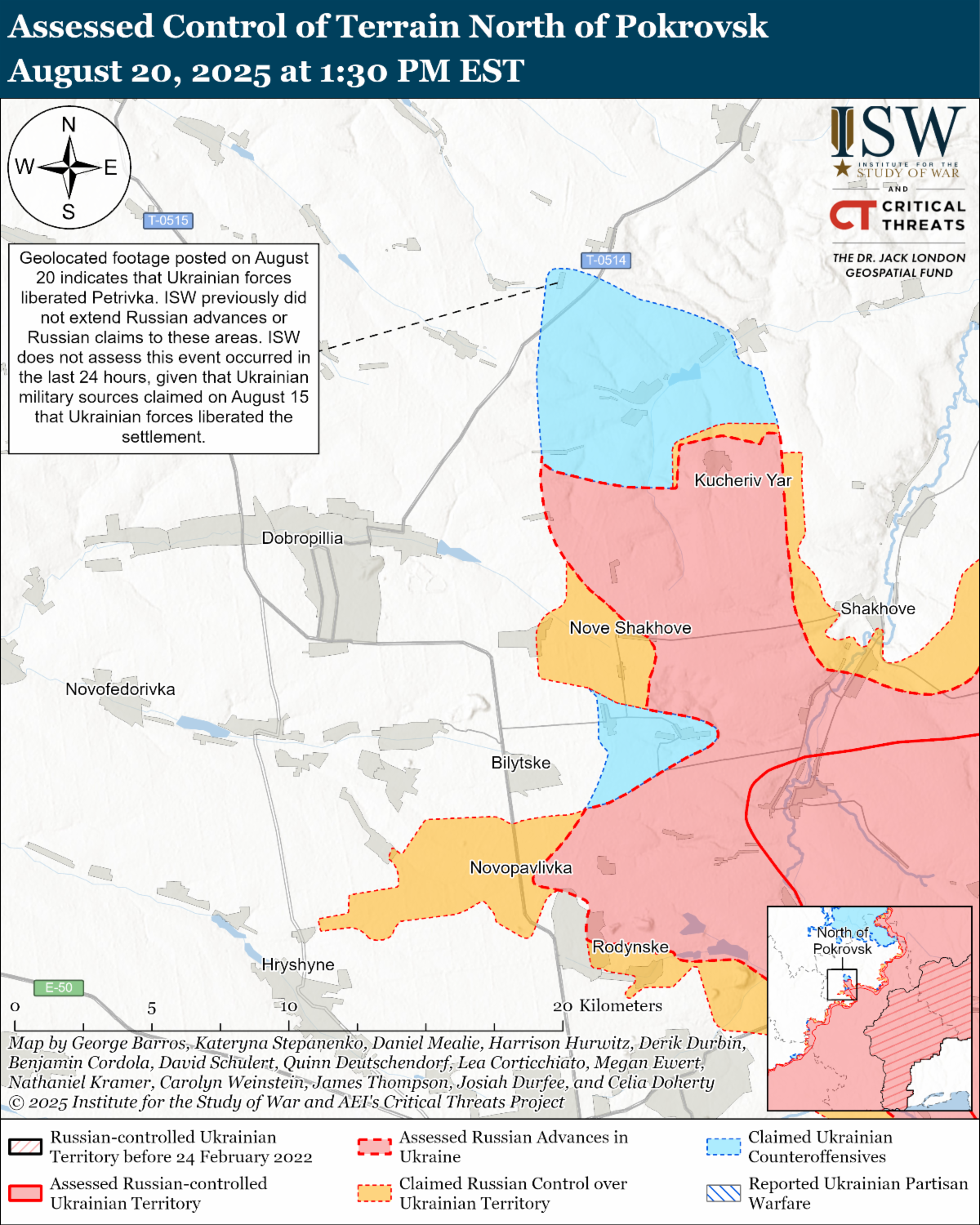The Kremlin is demanding that Russia have a veto over any Western security guarantees for Ukraine in an effort to undermine ongoing US, European, and Ukrainian efforts to establish conditions for lasting peace in Ukraine. Russian Foreign Minister Sergey Lavrov stated on August 20 that any serious discussions on Western security guarantees for Ukraine without Russian input are a “road to nowhere” and that Russia “cannot agree” that now-proposed "collective security issues" can be resolved without Russia, effectively demanding a Russian veto over Western security guarantees for Ukraine. Lavrov also threatened that Russia will take “firm and harsh” action to ensure that Russia’s “legitimate interests” are a part of any postwar security arrangement for Ukraine.
The Kremlin appears to be demanding that any security guarantees be based on those proposed in the Istanbul 2022 framework, which would grant Russia and its allies the right to veto Western military assistance to Ukraine and leave Ukraine helpless in the face of future Russian threats. Lavrov stated on August 20 that Russia is in favor of collective security guarantees that are “truly reliable” and that a good example of such guarantees was evident in the 2022 Istanbul Ukraine-Russia negotiations, which would have permanently prohibited Ukraine from joining NATO, imposed limitations on the Ukrainian military, and banned Ukraine from receiving Western military assistance without any imposing restrictions on the size or capability of Russian forces. The security guarantees proposed in the draft 2022 Istanbul Protocol treated Russia as a neutral security “guarantor state” of Ukraine along with the other permanent members of the UN Security Council, failing to identify Russia as a belligerent in the war. The outlined security guarantees would give China and Russia veto power over any action the guarantors could take in response to a renewed Russian attack by granting the UN Security Council the authority to take “measures necessary to restore and maintain international peace and security.” Such "security guarantees" would allow the Kremlin and its allies to dictate the means and tools that Ukraine could use to defend itself against Russia and restrict the ability of other guarantor states to come to Ukraine's assistance.
The Kremlin is continuing to indicate that Russian President Vladimir Putin is unwilling to have an immediate bilateral meeting with Ukrainian President Volodymyr Zelensky on the timeline proposed by US President Donald Trump. Lavrov stated on August 20 that Putin confirmed his readiness to continue direct negotiations with Ukraine in the Istanbul format. Russian and Ukrainian delegations have engaged in three rounds of bilateral talks in Istanbul since February 2025, which have resulted in nine prisoners of war exchanges, but little more. Lavrov claimed that Putin would consider raising the level of the delegation heads after working groups had been established but added that a summit between Putin and Zelensky would need thorough preparations that could take time. Several US officials have stated that Putin promised Trump that he would meet with Zelensky following the multilateral summit between the United Stated, Ukraine, and European leaders on August 18. Trump stated on August 18 that Zelensky and Putin need to meet urgently and that waiting too long before having a leader-level bilateral meeting would result in thousands of deaths. Lavrov may have attempted to portray the Kremlin’s proposal of continued negotiations within the Istanbul framework and working groups as fulfilling Putin's reported promise to Trump to hold a bilateral meeting with Zelensky. Continued negotiations within the Istanbul framework are a far cry from a head of state-level bilateral meeting, however, and Lavrov's statement is likely part of the Kremlin’s continued efforts to protract peace negotiations and deflect blame for delays onto Ukraine and the West. | 




 [국방부] 대한민국 지키다 산화한 유엔군 용사 모신다… 국유단, 6...
[국방부] 대한민국 지키다 산화한 유엔군 용사 모신다… 국유단, 6...
 [ISW] 이란 업데이트, 2025년 8월 20일
[ISW] 이란 업데이트, 2025년 8월 20일